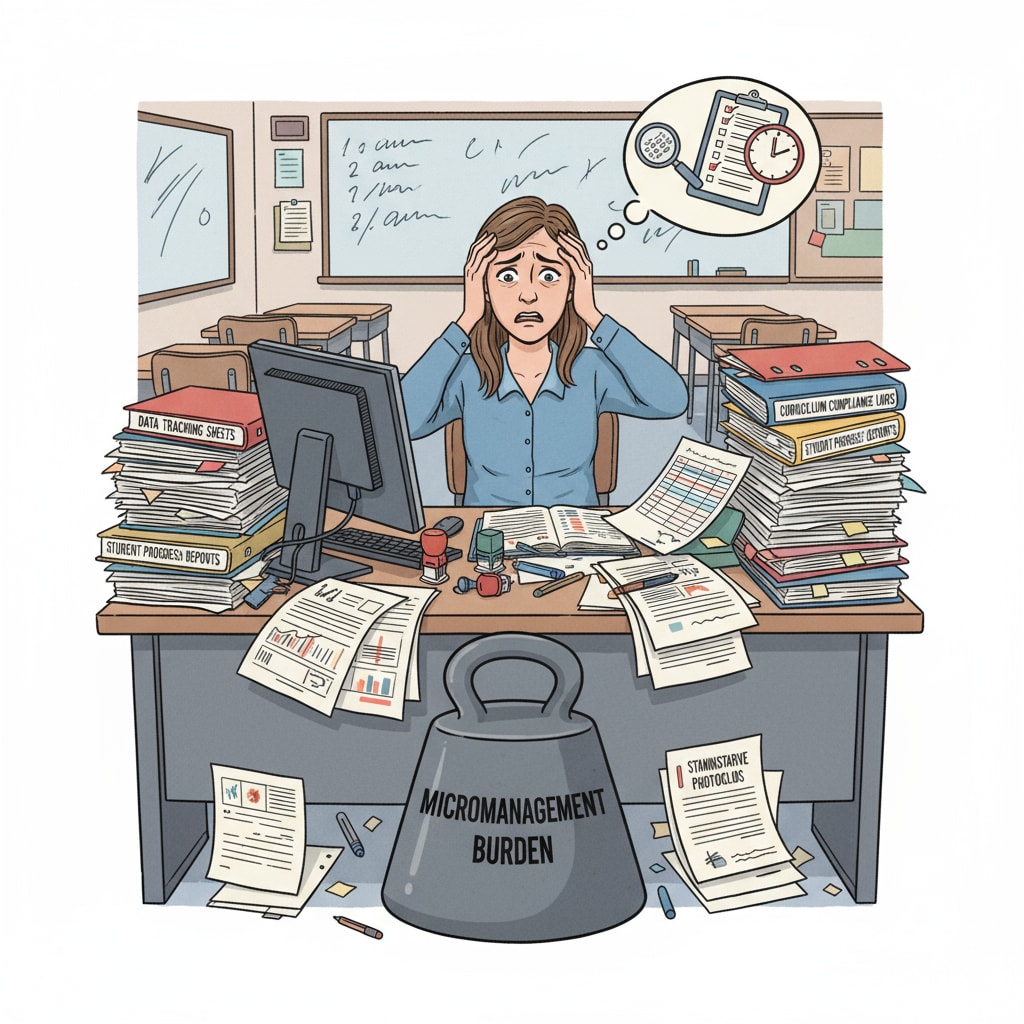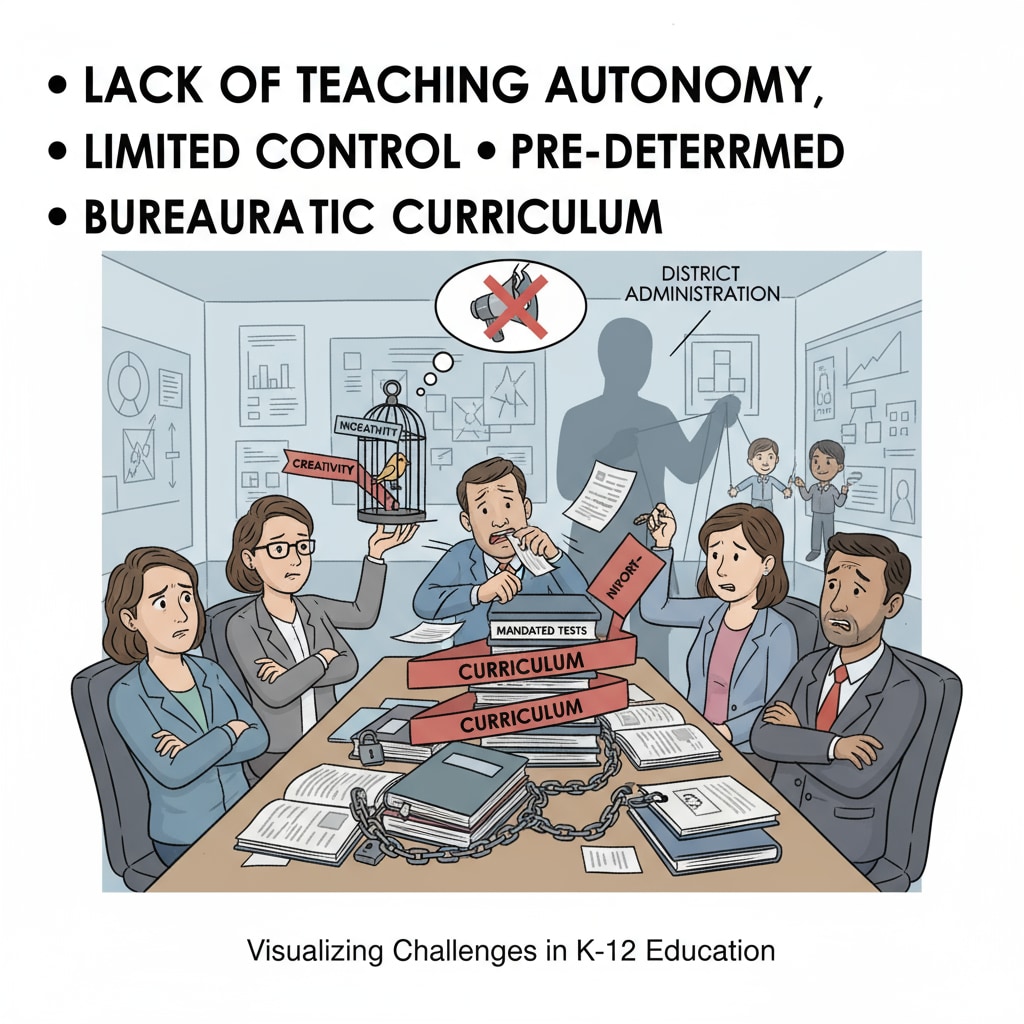In the realm of K12 education, micro – management, teaching autonomy, and work stress have become intertwined issues that are causing significant concern. Teachers today are facing an unprecedented level of micro – management, which is severely undermining their teaching autonomy and increasing their work stress. This has far – reaching implications for both the quality of education and the well – being of educators.

The Burden of Micro – management
Micro – management in K12 education manifests in various ways. For example, teachers are often required to keep endless data records. They need to document every aspect of students’ performance, from daily quiz scores to minute details of classroom behavior. This not only consumes a vast amount of their time but also shifts their focus away from actual teaching. According to the National Education Association, these excessive administrative tasks have made it difficult for teachers to engage in meaningful instructional planning. In addition, the curriculum is often set in a rigid manner. Teachers are given little room to adapt it to the diverse needs and interests of their students. As a result, the creative and personalized aspects of teaching are sacrificed.
The Erosion of Teaching Autonomy
Teaching autonomy is crucial for educators to deliver high – quality education. It allows teachers to use their professional judgment, tailor lessons to students’ needs, and create an engaging learning environment. However, the current micro – management practices are eroding this autonomy. Teachers feel like they are mere implementers of a pre – designed system, rather than being able to make decisions based on their knowledge of the students. This lack of autonomy not only stifles their creativity but also makes them feel undervalued. A study by ASCD found that teachers who have more teaching autonomy are more likely to be satisfied with their jobs and more effective in the classroom.

The consequences of this erosion of teaching autonomy are significant. In terms of education quality, students may not receive the individualized attention they deserve. When teachers cannot adapt the curriculum or teaching methods, students with different learning styles may struggle to keep up. Moreover, the lack of autonomy can lead to high teacher turnover rates. If teachers do not feel fulfilled in their roles, they are more likely to leave the profession, which further disrupts the stability of the education system.
Work Stress and Its Impact
The combination of micro – management and the loss of teaching autonomy has led to a significant increase in work stress for K12 educators. Teachers are constantly under pressure to meet administrative requirements, leaving them with little energy for actual teaching and student interaction. This stress can have a negative impact on their mental and physical health. It can also affect their relationships with students, as stressed teachers may be less patient and engaging. In the long run, it is detrimental to the overall educational experience.
Readability guidance: We have used short paragraphs to make the content more digestible. Each H2 section has a clear focus, and we have included relevant information from authoritative sources. Transition words like “for example”, “in addition”, and “as a result” have been used to enhance the flow of the text. Lists could be further incorporated in future expansions to better organize key points. The use of passive语态 has been minimized, and most sentences are in the active voice for better clarity.


